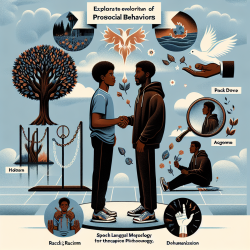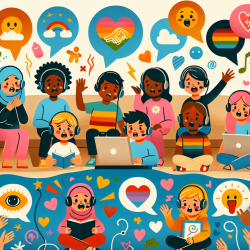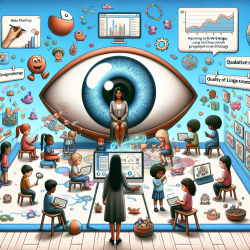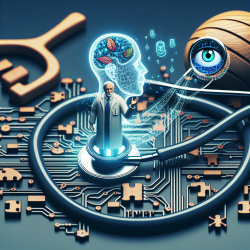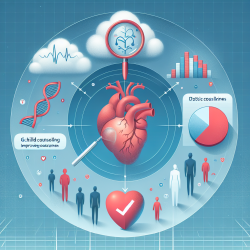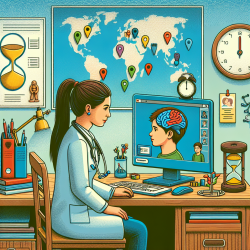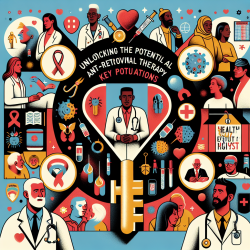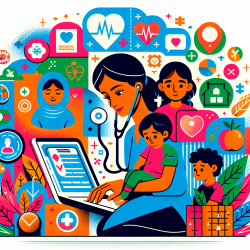Introduction
In the field of speech-language pathology, understanding the socio-cultural dynamics affecting children and adolescents is crucial for delivering effective therapy. The research article, “Be Kind But Not Too Kind”: Black Males' Prosocial Behaviors in the Face of Dehumanization, offers valuable insights into the prosocial behaviors of Black adolescent males and the challenges they face due to systemic dehumanization. This blog post aims to guide practitioners in leveraging these findings to enhance their practice and encourage further research.
Understanding Prosocial Behaviors
Prosocial behaviors refer to voluntary actions intended to benefit others, such as helping, sharing, and comforting. For Black adolescent males, these behaviors are often influenced by their experiences of racial identity and dehumanization. The study by Harris and Kruger (2022) reveals that these adolescents feel a sense of pride in their racial and gender identities but are also acutely aware of the precarious position they occupy in society.
Key Findings
- Black males often exhibit prosocial behaviors but may limit these actions to avoid appearing vulnerable.
- Their experiences of dehumanization and oppression significantly impact their identity and prosociality.
- Participants in the study expressed that their understanding of how others perceive them influenced their prosocial behaviors.
Implications for Practitioners
For practitioners working with Black adolescent males, it is essential to consider the macro-level processes like racism that influence these youths' identities and behaviors. Here are some strategies to enhance practice:
- Build Trust: Establish a safe and supportive environment where Black males feel valued and understood. This can help them express their identities and prosocial behaviors without fear of judgment.
- Encourage Positive Identity Formation: Support adolescents in developing a positive racial and gender identity. This can be achieved through culturally responsive practices and materials that reflect their experiences.
- Promote Empathy and Understanding: Educate peers and school staff about the challenges Black males face, fostering an inclusive environment that encourages empathy and mutual respect.
Encouraging Further Research
The study underscores the need for continued research into the intersection of race, gender, and prosocial behaviors. Practitioners are encouraged to engage in or support research initiatives that explore these dynamics further. Such research can inform interventions that promote positive outcomes for Black males and other marginalized groups.
Conclusion
Understanding the complex interplay of identity, prosocial behavior, and dehumanization is crucial for practitioners aiming to create positive outcomes for Black adolescent males. By integrating the insights from Harris and Kruger's research into practice, professionals can contribute to a more equitable and supportive environment for all children.
To read the original research paper, please follow this link: “Be Kind But Not Too Kind”: Black Males' Prosocial Behaviors in the Face of Dehumanization.
